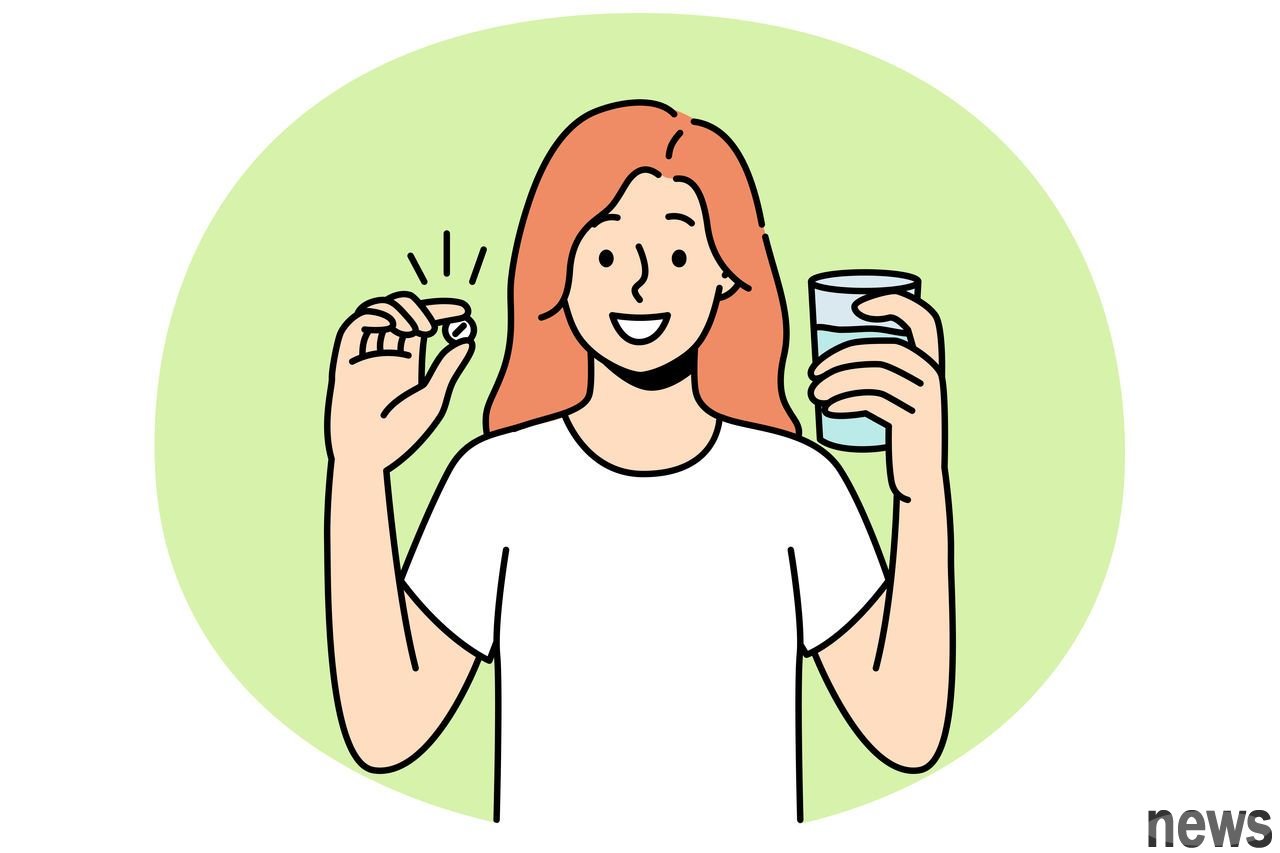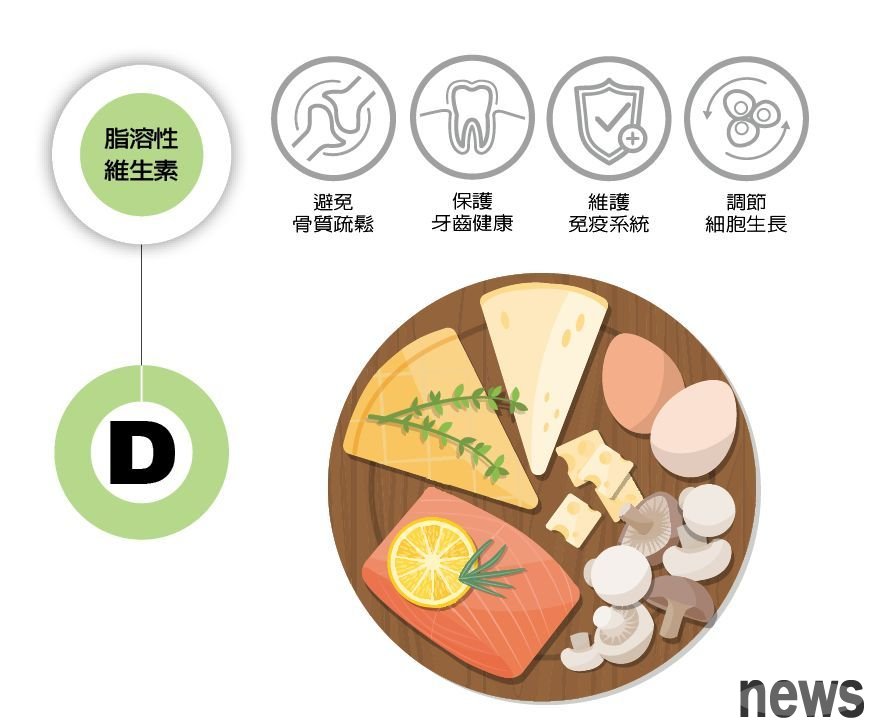
About 60 to 70% of the world's population has insufficient vitamin D. According to the national nutrition survey, there are also about 75% of the people in Taiwan, and vitamin D is lower than "full consumption".
What are the importance of vitamin D?. Maintain bones and teeth health
. Adjust the immune system
. Cardiovascular health
Vitamin D is an important substance that controls calcium absorption and maintains calcium phosphorus balance. In addition to maintaining bone and dental health, it is also related to cardiac vascular health and immune regulation.
Long-term vitamin D deficiency may cause bone relaxation and early access. The most feared bone loss of bones is that it may cause severe fractures and hospitalization. It will increase the time for unhealthy life.
In addition, vitamin D deficiency can also affect immunity, gastrointestinal absorption, and increase the risk of liver and kidney, depression and other diseases. In addition, it is also related to hyperthyroidism, baby rime, adult osteosis, etc.

. It is mainly composed of
through sunlight. A few foods such as deep-sea fish, egg

Su Xiuqing, director of the Nutrition Department of the Hospital Affiliated to Taipei Medical University, said that the largest source of human vitamin D is self-synthesis through "Rizhao". However, Taiwan does not have sunshine every day. According to the eighth edition of the National Health Administration’s “Reference for Dietary Nutrition Intake for Nationalities”, taking 105 years as an example, the average sunshine in northern Taiwan is as high as six months a year, with an average sunshine every day less than 3 hours, the average sunshine per day in January is only 0.91 hours, and the average sunshine in the south is on average 5.9 hours a day.
Even if the sun is long in the south, as people's working style changes, they are mostly "indoor". In addition, the sun protection is thorough, which also greatly reduces the chance of sunshine, and the chance of synthesising vitamin D by yourself is also reduced. Su Xiuqing said that to improve the human body's vitamin D, it is recommended that 15 minutes of snooping and getting enough vitamin D can be roughly obtained after 15 minutes.
Su Xiuqing said that in addition to sunshine as the source of vitamin D, a small number of foods also contain vitamin D, such as deep-sea fish, sardines, etc., which are like egg yellow, while the content of deep green vegetables is not particularly high.
Who needs vitamin D supplement?. It is recommended to draw blood to confirm
before replenishing the sun every day. Before replenishing nutrients containing vitamin D, it is best to draw blood to confirm whether the body has a long-term lack of vitamin D, and then replenish if it is insufficient.
If the value of vitamin D in the blood is lower than 10 ng/ml, it is a serious deficiency; between 10 to 20 ng/ml, it is a deficiency; 20 to 30 ng/ml is a deficiency; if the value exceeds 30, it is normal; if the value exceeds 400 ng/ml, it may be overdose.
Recommended dose of vitamin D supplement?. 10 micrograms per day under 50 years old
. 15 micrograms above 50 years old
. Pregnant and high-age patients are most likely to lack the recommended amount of vitamin D under the age of 50 to 10 micrograms per day, including women who are pregnant or breastfeeding; for those who are over 50, it is recommended that the amount of vitamin D should be 15 micrograms. The National Health Administration found in the "National Nutritional Health Condition Change Survey" from 20 to 49 that the vitamin D deficiency rate in women with age 20 to 49 was 43.5%, indicating that vitamin D was clearly insufficient. The National Health Administration reminds that you should receive more days during pregnancy. Vitamin D is an indispensable key nutrient during pregnancy and can help the fetal bones and teeth develop healthily.
Su Xiuqi suggested that long-term soldiers should go out and walk around the sun more often. From 11 to 12 a.m. every day, they may wear a vest to expose their skin. After 15 to 20 minutes, they will have the opportunity to get vitamin D. If it is difficult to go out, it is recommended to supplement vitamin D, but it is not recommended to supplement high-dose vitamin D at one time. You can start with 600 IU (15 micrograms). The blood test shows that there is a serious deficiency of vitamin D, so it is recommended to supplement the dose of 1000 IU (25 micrograms). After 3 months of use, draw blood to confirm whether the vitamin D value in the blood returns to above 30ng/ml, and after returning to normal, then adjust the normal dose to replenish.
What may be the side effects of excessive vitamin D?Overdose of vitamin D can also bring side effects. Overdose of vitamin D will increase blood calcification, increase the possibility of dysclerosis, kidney disease, stones, etc.
Responsible editor: Gu Zihuan